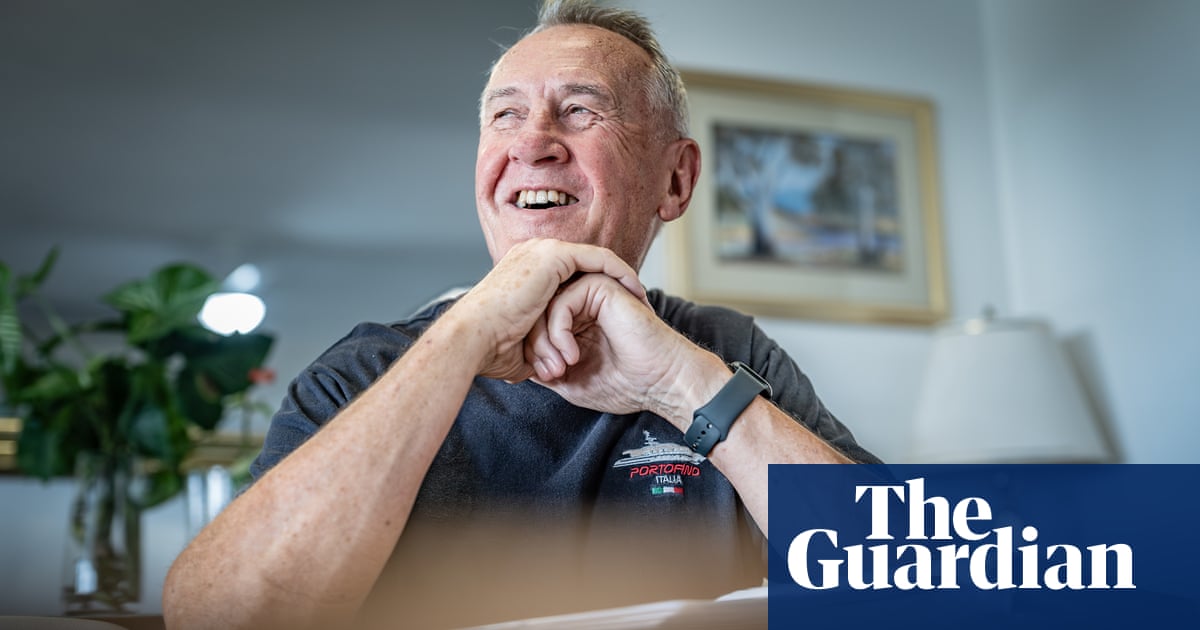
When retiree Pat Mathews was planning her post-work life in an outer suburb in Melbourne’s west, she realised she lacked friends – local friends. She remembers thinking: “You’re going to have a lonely life if you don’t do something.”
Until then, for more than 30 years, the divorcee had enjoyed a busy city job – 6am to 6pm, five days a week – surrounded by people. The two-hour commute meant she had only ever exchanged little more than a wave with her neighbours. Her closest friends were scattered hours away.
Generally, as we age, our social networks become smaller. Often for reasons outside our control: friends may move away or pass away. Interests change. One in five older Australians are socially isolated. Meanwhile, research shows us that close relationships are the best predictor of happiness and longevity. So, for people determined to buck those trends – to expand or maintain their friendship circle as they age – how do they go about it? And does the way we pursue and experience friendship change in later life?
Prof Tim Windsor, the director of the Generations Research Initiative at Flinders University, says one reason older people report smaller social networks than their younger selves is that their perception of what is important changes. They are less focused on future-based goals, such as establishing a career and a family and cultivating large socially diverse friendship networks to help them achieve these. “They’re more concerned with goals that will support the quality of their life … now,” he says. “And focusing more on the people who are close to [them].”
Mathews, a self-professed introvert, admits she wasn’t practised in making new friends and, as she had gotten older, she had become a bit more cautious. “You don’t take things on face value,” she says of her approach to friendship later in life. “When you’re young, you take everything on face value.” She knew that for her, making new friends was going to be a “slow burn”, and that meant she needed a plan.
As Mathews transitioned to retirement at 65, she cut her working week to four days and joined local gardening groups and an evening book club to get to know people in the area.
Her plan paid off. A few of the new people she met through gardening and the book club gradually started sharing produce, attending like-minded events, seeing movies based on recent reads and meeting for dinner or drinks. Mathews, now in her 70s, has added four new friends to her inner circle. “It’s a good thing to have something in common to start off a friendship,” she says.
But the term “friend” isn’t one Mathews uses lightly these days. As a younger person, she remembers introducing someone as a friend after only a brief acquaintance. But these days, she says: “Friends are people that come and go in my home. And I go to theirs.”
The health psychologist and social gerontologist Prof Colette Browning, from Federation University, says the idea “the more friends the merrier” no longer holds true. “In older life, it’s more around meaning, feeling like you can be honest, your authentic self with people. You’re not playing a role.” And we pursue and maintain friendships that value that authenticity.
Mathews’ new friends are firmly based in the present. “You pick up [from] where you are in life, and you take the friendship forward,” she says. She is not looking for approval from her friends like she did in her younger years, which she finds liberating. “I’m much more self-sufficient … and very strong in how I want to live my life.” This doesn’t make them lesser friendships, just different, Mathews insists.
Prof Catherine Haslam, a clinical psychologist at the University of Queensland, researches the role social ties play in life transitions. She says that increasingly research is showing people who cope better with life’s disruptions – retirement, illness, loss – are practised at being well connected beforehand. That’s important because these disruptions tend to become more frequent as we get older. She says research is showing that “group-based connections [friendship networks, community and interest groups, clubs] play a particularly important role in supporting us … and helping us cope with the challenges and adversities life throws our way.”
For 65-year-old Maria Govers, the last five years have been challenging. Against the backdrop of the ups and downs of a demanding career and study workload, she juggled the declining health and death of her parents, as well as the deaths of her younger brother and a best friend of 30 years, both to terminal illness. The friend, Clara, she describes as her soul mate. “There’s a deep hole there and one that I don’t think will ever go away,” Govers says.
Sharing her grief with another of Clara’s oldest friends has helped. “We’ve become very close,” says Govers.
One of her most recent friendships developed after working a single 14-hour shift together for the Australian Electoral Commission. She says the immediacy of the connection would have surprised her younger self. “I don’t recall ever having had a connection with someone so different to me in terms of background.” Linking up on social media after their shift, the two built their friendship over coffee, lunch and good conversation. Govers values her new friend’s diversity of thought. “I like the way she thinks. I like the way that she challenges me and the advice that she gives.”
Haslam suggests older people search through their skills to access volunteer opportunities and local networks. “Don’t just go to any activity. Go to something that floats your boat, go to something that is meaningful to you.” Otherwise “it kind of falls by the wayside because it doesn’t matter to the person”. And “think local”.
With their two sons and their families living overseas, 76-year-old retiree Roger Dougan and his wife relocated from Melbourne to Perth to increase their proximity to “old” family after an absence of 46 years. Dougan admits the decision to leave friends behind was difficult.
That was two years ago. And while Dougan firmly maintains nearby family is important, he believes friends are the tonic for a healthy life and he devotes time and energy to maintaining them; opportunities to find friends are not as easy to find as when he was at school, had a young family, or worked. Browning says it’s important for those seeking friends not to give up if things don’t work out the first time. “You have to say, well, I’m going to need to try a few different things to see where my new tribe might be.”
“As we age, we need to try harder to put ourselves in the right place to allow engagement with like-minded folk who could be considered friends over time,” Dougan says.
Since returning to Perth, Dougan reached out to old colleagues – people he hasn’t seen since he left as a 26-year-old – and reconnected over lunch. He plays golf, cycles, swims most mornings, and attends regular social events at the lifestyle village they now call home. “Day-to-day contact with friends and neighbours in the village is particularly important.” He’s even drawn on his finance and IT systems background to volunteer his skills for the residents committee and finance subcommittee.
Haslam says as we get older we’re looking to spend time with those who make a meaningful contribution to our lives. “We’re looking for those relationships that are good for us, people who make us feel good about who we are and people who help us live out the things that we value, together.”
Shared values, such as honesty and reciprocity, have always been important for Dougan, but as he’s gotten older, he says they’ve become more poignant. “You talk the same language. You have the same values. You care about the same things. You care about the same people.”
Time, he insists, does not hinder the forming of close friendships as an older adult, but being open to connection does. “Once you’ve got your foot in the door, you’ve got a chance to make something worthwhile.” He adds: “Some of it is chemistry.”
When Dougan was on an open inspection tour of the facilities of the lifestyle village, he saw a man, John, coming out of the swimming pool. “I didn’t know him. I just called out, ‘are you training for the Olympics?’ And he said, ‘no. I went there last year.’” In Dougan’s experience, sometimes you have to be prepared to be vulnerable. “Nothing ventured, nothing gained,” he says with a smile.
Dougan remembers the day he and his wife moved in; John was close by. “He said, ‘where have you been? I’ve been waiting for you for six months, Roger.’”
“Two for lunch” is now a permanent Thursday appointment in Dougan’s calendar for his newest best friend.










